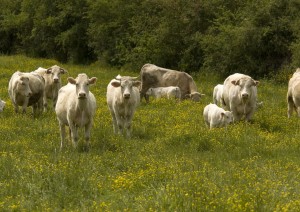
The UK’s decision to leave the European Union has created a huge set of risks and threats, but also some opportunities. One opportunity is to change the course of farming policy and practice. For 40 years the UK was subject to rules on how farmers were paid – rules decided in Brussels (though greatly influenced by UK farming industry lobbyists such as the National Farmers Union). These rules collectively became known as the Common Agricultural Policy (CAP for short). The original intention of that policy was to pay secret war reparations, by siphoning money from German industry to French farmers. You can read more about the Common Agricultural Policy and how it helped wipe wildlife, history and communities from the British countryside, in the People Need Nature report “A Pebble in the Pond.”
Around £3 Billion a year of farm subsidies are currently paid out to UK farmers, with large landowners getting the lion’s share. Small farmers with less than 5ha of farmland are entirely excluded from this scheme.
As we leave the EU a new UK Agricultural Policy will be needed – but not yet. The transition period, which is set to run from April 2019 to December 2020 – or the “18 months of chaos”, as I predict it will become known, will likely see the UK remain inside the CAP. Environment Secretary Michael Gove has indicated that during this time he will introduce a cap on the total payment made to each farmer. This cap could be at around £100,000 a year, which sounds like a lot of money (and it is.) Over the following few years, the new UK Agricultural Policy – let’s call it a UKAP, will be introduced. This is where it gets interesting.
Secretary of State Gove has indicated time and again that he wants the new approach to be based on a principle that public money should only be used to pay for public benefits – or, more specifically public goods, in the technical language if economics. Growing food in and of itself is not a public good, because any food grown is sold on the market – that makes it a private good. Public goods include clean air, healthy soil, wildlife, flood prevention and any actions taken to limit the impact of climate change, access to the countryside, among many others. Some suggest that “rural vitality” is a public good, which means supporting deeply rural farming communities that would otherwise disappear, without public support – and upland hill farms are the most often cited example.
This is radical departure from the current system, which pays around £200 per hectare per annum to landowners, regardless of whether they grow food or not (within a set of loose rules designed to ensure that they do not do anything too damaging to the environment.) Needless to say the farmers, notably through their main representative the NFU, are not happy about this. But the winds of change are blowing and it seems likely that a change to “public goods for public money” is going to happen. If all £3 Billion a year of the current subsidy were paid to landowners to deliver public goods, in theory wildlife could be restored, flooding could be avoid, there would be much more access, struggling rural communities could thrive, and so on. But of course with the anticipated shock to the economy that even the softest Brexit will create, the Treasury is already looking to claw back that money.
While this looks like very good news for nature, a far larger risk threatens to pull in the opposite direction – that is the radical change to the way the UK trades with the rest of the world. Losing our place in the Single Market and Customs Union threatens UK farmers in multiple ways. A flood of cheap food imports (produced in some cases at much lower standards of hygiene, safety environmental impact or animal welfare) will undermine domestic food producers sending them out of business. Those who depend on exports to survive will also suffer especially those which export mainly into the EU (sheep and beef farmers.) Selling pork or innovative jam to China will in no way compensate for the loss of access to local markets.
A much more sensible approach might be to follow what our French neighbours are doing – requiring all publicly funded bodies (schools, hospitals, care homes etc) to procure half of their food from organic or local sources, by 2022.
The next 6 months is probably going to be the most exciting time to be involved in shaping agriculture and food policy in the past 70 years. I will be keeping you regularly updated on progress.
this post first appeared in Miles King’s No Tern Unstoned column for Lush Times.
